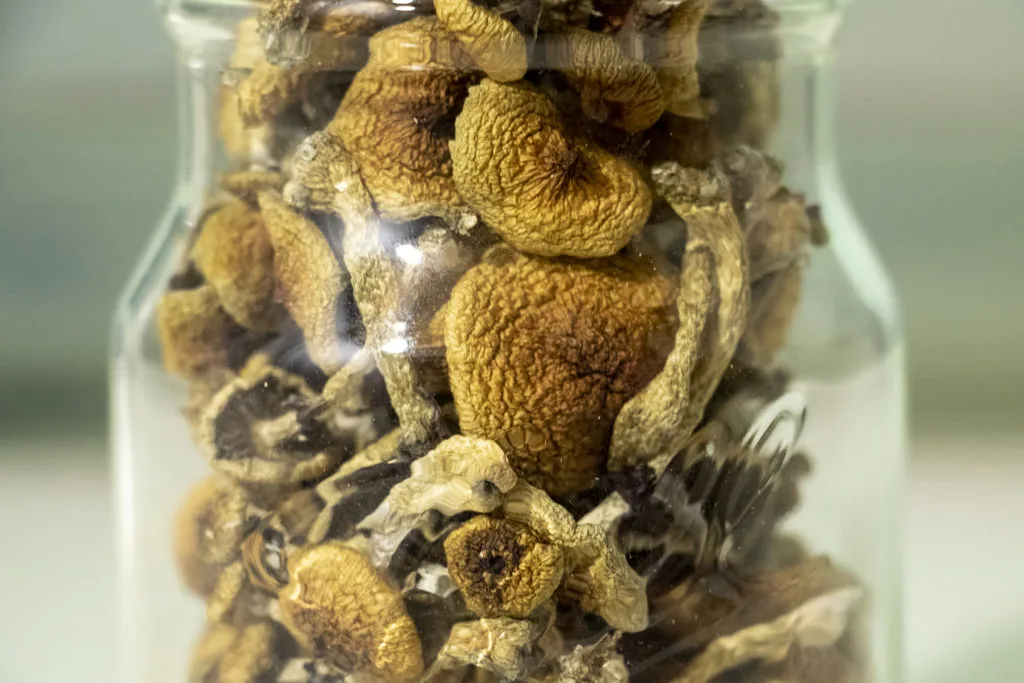A new study, published in the World Journal of Clinical Oncology, reveals that psilocybin may significantly improve the quality of life for patients with advanced cancer.

Dried psilocybin mushrooms. (Photo credit: Kevin J. Beaty/Denverite).
The study, conducted by researchers from the University of Michigan and the University of New Mexico and published online by the US National Library of Medicine, highlights the compound’s potential in alleviating symptoms of anxiety and depression among this patient group.
The meta-analysis included seven studies with a total of 132 participants, assessing the effects of psilocybin-assisted therapy.
“This systematic review and meta-analysis provided a comprehensive synthesis of the evidence regarding the effects of psilocybin-assisted therapy on quality of life, pain control, and anxiety relief in patients with advanced cancer”, states the study. “The findings of this review highlight the potential of psilocybin as a novel therapeutic intervention for addressing the complex psychological and existential needs of patients facing terminal illness.”
The meta-analysis results “revealed significant reductions in symptoms of anxiety among patients receiving psilocybin-assisted therapy. Specifically, analysis of anxiety levels measured by the STAI scale demonstrated a statistically significant decrease in anxiety levels at 6 to 6.5 months post-administration compared to baseline assessments.”
Researchers say these findings “suggests a potential therapeutic effect of psilocybin in mitigating anxiety among patients with advanced cancer over time, further supporting the utility of psilocybin-assisted therapy as a holistic approach to palliative care.”
Moreover, “the findings from individual studies included in this review consistently demonstrated improvements in quality of life, pain control, and psychological well-being following psilocybin administration.”
Patients reported “sustained reductions in symptoms of anxiety, depression, and existential distress, along with enhancements in spiritual well-being and overall quality of life.”
The study concludes:
These outcomes underscore the potential of psilocybin-assisted therapy to provide holistic support for patients grappling with the profound challenges of terminal illness. Furthermore, the potential implications of psilocybin therapy extend beyond clinical practice to research and policy. Continued research efforts are needed to further elucidate the mechanisms of action underlying the therapeutic effects of psilocybin, optimize treatment protocols, and address remaining questions regarding long-term efficacy and safety. Policymakers and regulatory agencies play a crucial role in facilitating research and ensuring ethical and legal frameworks for the clinical use of psilocybin in patients with advanced cancer.
The study can be found in its entirety by clicking here.







